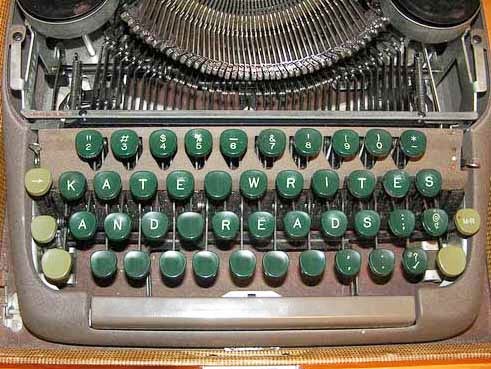I’ve just
finished reading the very enjoyable Water’s
Edge and as I know the author, Jane Riddell, through the Edinburgh Writers’
Club, I was able to ask her some questions about her work.
Congratulations, Jane, on the publication
of Water’s Edge.
Can you pitch the book to us – in 140
characters?
What a
challenge! Okay, here goes:
Set
in Switzerland, Water’s Edge is a
contemporary drama where secrets, guilt and regret turn a happy family reunion
into a stormy one.
Water’s Edge is published by ThornBerry Publishing. How
has the publishing experience been for you?
The most positive thing about being
published is the boost in self-esteem and self-belief. For years, every time I described
myself as a writer, I felt like a fraud.
This no longer happens. The
first few days after I heard that ThornBerry wanted to publish my book, I
wandered around with a cosy little glow inside me. It was lovely.
What has been a surprise is the amount of
effort I have to make in order to promote my book. I was naïve enough to think that
once I was published, the work was done and the royalties would roll in. In fact, as my publisher told me, the
hardest part today is not getting published, it’s selling your books. Consequently much of my working time is
now spent on promoting/marketing Water’s
Edge, involving learning another set of skills. I liken it to starting a new job with no induction,
training, supervision or guarantee of a salary. Over the last year or so, I’ve learned much about how to
promote myself, and am now more realistic. It does involve time and uncertain outcomes, but there’s a
pleasant side to it, for example, at the moment I am contacting people on Linkedin
to suggest we interview each other or review each other’s books. This mean I’m getting to know writers
from a range of English-speaking countries, all interested in promoting their
work.
The book is set in Switzerland – is that
somewhere you know well?
I’ve had
a few holidays in Switzerland, mainly to ski. As a child, on my first family holiday abroad, we drove to
Austria, stopping off in Brunnen, Switzerland for the night. We stayed in the wonderful old Waldstätterhof
Hotel, (featured in Water’s Edge, but
not Madalena’s hotel). Amongst
other things, I loved the fact that you entered the hotel to hear a pianist in
the drawing room. It wouldn’t
surprise me if some day I write a book based on the Waldstätterhof – it lingers
in my memory.
Being an
enthusiastic traveller, I like to set my novels in other countries. This allows me to spend ‘head’ time in
a sunny landscape, when those around me are enduring yet another blustery, wet
Edinburgh afternoon. After I finished the first drafts of Chergui’s Child, based in the south of
France, I thought about having an alpine setting for my next novel. As I
love mountain and lake locations, Switzerland came to mind. Shortly after,
I spent four days in Brunnen. It
was only when I arrived there that I decided to make it the setting for Water’s
Edge. It still intrigues me why I didn’t make the connection earlier!
Did any real-life people inspire your
characters?
A few aspects of
Vienne’s character are based on me, mainly her health worries, the way she is
slow to take reassurance she isn’t ill.
But other than that, not in this novel.
Madalena, Portia, Vienne and Annie each
have a ‘voice’ – did that take a lot of advance planning?
It did, yes. I was aware of the importance of varying
the voices, so I spent time thinking about speech patterns, favourite phrases,
and the attitudes I wanted to convey.
This is quite hard to do – although you need to incorporate pet words,
as with so many aspects of writing, it’s about balance – too many, and it
becomes irritating/self-conscious writing, too few, and they’re not enough to
depict the character.
Anita Brookner’s Hotel du Lac is mentioned in your book several times. Did you feel that it was the
elephant in the room, so to speak – that the Swiss lake-side setting of Water’s
Edge would inevitably bring Hotel du
Lac to the reader’s mind?
No, I didn’t,
but I think that my novel was probably inspired by Hotel du Lac, albeit subconsciously. When writing the first draft of Water’s Edge, I didn’t know that the hotel used in the film version is
actually on Lake Luzern. (In the book, the protagonist, Edith Hope, is
exiled to a hotel on Lake Geneva.)
Which do you prefer – the writing or the
editing process?
Probably the
writing process, especially when ideas are flooding my mind and words
haemorrhage out – this happened with the initial draft of Water’s Edge. Editing is
pure slog, although there’s the pleasure of re-reading a piece of text and
seeing how it has strengthened. I’m
convinced enough of the value of a
comprehensive edit to have written a small editing guide (Words’Worth: a fiction writer’s guide to serious editing, also
published by ThornBerry), but admit to finding the process time-consuming,
tedious and hard work. At least
you can edit when you’re not feeling particularly creative/inspired, and know
that your book is progressing.
What are you writing now?
I am completing a rewrite of Chergui’s Child. This tells the story of Olivia who inherits a fortune after
her aunt dies, at the same time learning something significant about her past
which propels her on a life changing journey. It should be finished
by Easter.
Where can we buy Water’s Edge, and where can we find your website/blog?
Water’s Edge can be purchased from Amazon in both
Kindle and paperback formats:
And from Barnes and Noble in paperback:
My editing
website: http://www.choicewordsediting.co.uk
Thank you for answering my questions, Jane. Look forward to your
next novel.






+copy.jpg)


